It is Saturday, March 20. I have been here for ten days and will head back to Kabul on the 22nd. I would rather be here, but we have to do what we have to do. They are moving us in Kabul, yet again, to new housing. This is the seventh move for me in fourteen weeks and I hope it will finally be the last. We are moving from the UNOCHA compound on Jalalabad Road (aka, "Bomb Alley") to the Park Palace Hotel, which has just been approved as secure by the UN Department of Security Services. We are hoping that means they have Gurkha security. We are pretty happy about this turn of events because it is only two blocks from our office. No more getting up at 5AM so we can leave UNOCHA before six and miss "prime bombing hours." We are also hoping that our big boss, Jean-Luc, will give us the okay to be in Herat permanently, which is actually what was supposed to happen when I got here.
I almost don't know where to begin about this trip to Herat. We spent four days running across the desert and up and down the Iranian border with the Afghan Border Police. Thursday and Friday, we were joined by a Channel 4 London (connected to BBC 2) film crew who followed us and our ABP security team to several remote border posts. They are making a documentary about the situation on the border, the ABP and the whole issue about the drug trade going across the border into Iran. They spent a lot of time interviewing Tony and the men of the ABP, as well as Kuchi tribal leaders who met us at one of the posts ands talked about the problems in their villages and for their people.
Their top concerns were water, electric power and schools for their children. Tony talked with the UNODC Alternative Livelihood and World Food Program people back at our base in Herat and they will be taking humanitarian assistance to one village at the end of the month, and the other village we visited on Tuesday, the first week of April. This will be good for our program and the ABP because it will show that we follow through when we say we will help them. We are also hoping to figure out a way to bring them medical care, which was also a major issue. Many of their children appeared to have respiratory problems and several seemed to have some kind of palsy. The Kuchi raise goats and sheep and they live a harsh existence, particularly in the winter. They told us that they had people die this past winter because of deep snow, extreme cold and no ability to get out of their villages to a safer environment, or for help to get to them.
Yesterday, Victor (a retired Ukranian police colonel and former Russian airborne soldier) and I and our interpreter, Fahim, spent about four hours in a bivouac at the base of a small, steep hill where a border post was located on top. There was only room for three vehicles at the end of the very steep road going up there, so Tony, the film crew and one truck of security went up and did interviews and a lot of filming. The rest of the ABP crew and us had the area around the base secured and they sent men out across the nearby desert to take up positions on higher ground. It was very cool.
I ended up being invited for tea and lunch, first by the company commander and, then, about an hour later, by the brigade executive officer, Col. Hammadullah, whom Tony has known for a long time. It was very nice to sit under a home-made tent draped from the colonel's truck to the top of a small hill that was adjacent. They had put a blanket on the ground and it was good to get out of the heat of the day. We had strong black tea, rice, fresh baked (at the ABP post) bread and boiled beef. I added plastic toothpick/flossers to the mix, which went over really well. It was nice to be asked to join the mission command for lunch, which also included the 2nd battalion (kandak) commander, platoon leaders and the first sergeant. Col. Hammadullah is quite the figure and I have included a picture of him with this post. He is great at exhorting his men to defend their country and telling them that their task is daunting and dangerous, something which I think the rank-and-file officers know, anyway.
The young men who accompanied us as security--there were between 12-14 trucks, 6-8 men per truck--were from the brigade Quick Reaction Force and they seemed committed to their job. Each truck had an RPK machine gun, each man had either a version of an AK-47 (the Hungarian AMD 65), or an AK with a Russian grenade launcher and some also carried handguns. There is nothing like flying across the desert at 70-80 kilometers-per-hour-with lots of guys with guns. Victor and I spent quite a bit of time during the bivouac talking with six or eight of them about just stuff--what did my tattoos mean; where did my cargo pants come from; why did I have three knives; what was my Gerber tool for? I showed them my very small MP3 player and a couple of them ended up listening to Black Sabbath at very high volume. One guy was smiling and started dancing in place to the music. Holy crap...heavy metal comes to the Afghanistan high desert.
One of the best parts of the day was when got to do some shooting. Victor and I had CZ 58s (the Czech AK) which performed flawlessly. The ABP set up a line of rocks about 70 meters out and Victor turned out to be "Dead-Eye Dick," much to the glee of the ABP. He just shot the shit out of every rock, which most of them missed. He got a standing ovation. When I told Tony, he commented, "So, they saw what you can do if you use the sights?" It seems that the ABP has a hard time learning to use their weapons correctly and not on full-auto all the time. Then we got to shoot a couple of Smith & Wesson Sigma 9mm pistols. Victor's worked really well; mine jammed every 3-4 bullets. Probably a weak spring, Tony thought, or maybe a bad clip. They fired their RPK machine guns, but it was a little disconcerting that all three of them kept jamming. Kind of made Victor and me wonder what they hell would happen if we got into a gun battle.
During this trip we got to see the results of two drug busts. One was 12 kilograms of both brown (not fully processed) heroin in chunks, and pure white heroin, called "crystal." The second day, the bust netted 13 kilograms. Today we learned that they made a huge bust of about 280 kilograms south of here in Farah Province. We also heard that one of the posts north of us on the border with Turkmenistan was overrun by bad guys and that the post commander was killed. This is in Badghis Province, which has recently seen a huge increase in anti-coalition forces. ISAF/NATO and the Afghan National Army are mounting an air assault into the area in the next few days to retake the post. There was also a bust in Herat that was about 400 kilograms, but before the ABP could get there with backup, the bad guys apparently bought off the ABP officers involved, got their dope back and the perps were released. There may have been involvement by high-ranking officers, as well, and it looks like the National Directorate of Security (NDS--like their CIA) is investigating. We hope so, anyway. The problem with the endemic corruption in Afghanistan is that it is even found in the ABP, I am sad to report. It's just the way it is and you accept it, hoping that the work you do will help the young, upcoming officers and NCOs want to do something different and help their country change for the better.
Two days before we first headed out into the desert, an ABP crew on patrol was hit by an IED. It was lucky that no one was killed. There were some slight casualties and the vehicle was apparently destroyed. They had no backup, which is a little hard to fathom, so it's a good thing that no one needed immediate trauma care, med-evac, or that there wasn't also an armed contingent that started shooting at them. It is unclear at this time if it was Taleban or drug guys, or someone with a grudge because someone in the ABP didn't pay them enough on a drug deal, or some other criminal activity.
Anyway, while we were on our way to the last border post on Friday, they took us to the IED site. I was able to examine the crater and we found what looked like shrapnel from an anti-tank mine and a 120mm mortar round--a "boosted" IED. Later in the day, while Victor and I were in the bivouac and Tony was up on the hill with the film crew, they brought me the initiation device. It was a very slick remote-controlled device tied to a 6-volt battery and using an electric blasting cap. The receiver for the remote was a simple black wire that had been stripped of its insulation for the last six inches, or so. The remote, itself, is contained in what appears to be a yellow plastic pill box, about six inches long, two inches wide and an inch high, that was epoxied together. When we go back to the brigade HQ on Monday, they are going to let me pry it apart to see exactly how it was made. I am assuming that the transmitter was something like a remote-controlled car or electric doorbell hand-held device. More on this later. I have included a picture.
Well, that's about it for now. Tomorrow is the New Year, here, so it is an official UN holiday. It is kind of a weird day in Herat because, in the past, there have been riots between the Sunni and Shi'ite over different beliefs about...who knows? Tony said that when he came back from the Brigade HQ yesterday afternoon, he saw a klot of Afghan NAtionbal Army troops being brought into town. I guess they were just being cautious because of the past problems and we're hoping that it's just a nice day for all Afghans as they celebrate their new year. We are going to try and make it to the ISAF base--Camp Stone--for a good coffee, maybe some pizza, the PX and the post office to finally pick up the 100 batteries I had sent from the States for night-vision goggles we give to the ABP. Enjoy the pictures and the video.
Subscribe to:
Post Comments (Atom)
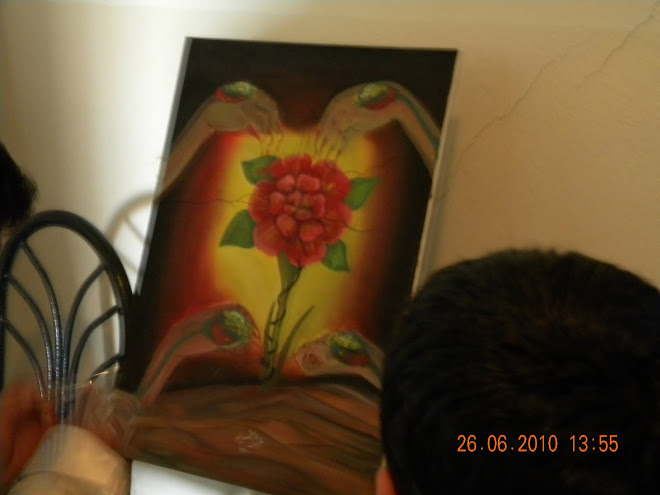.jpg)




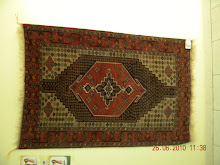.jpg)



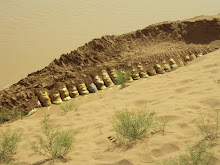




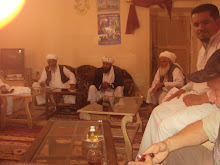
















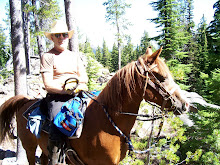


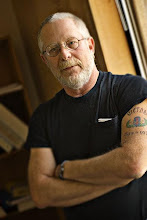
Stu, good post. Hi to Tony. You guys look healthy. Thanks for what you're seeking to accomplish over there. It is sunday. Dave and I are going to EXPO gun show later today. Keep the Faith -watch your sixes.
ReplyDeleteI enjoyed reading your post, sounds very exciting. I wondered what you would think of an AK, glad yours worked well!
ReplyDeleteThe tents also almost always smell bad cause they use the animal skins. At least that is my memory of Saudi. Did I tell you that the Saudi's built great big high rises for the Bedouins that weren't used till Desert Storm. The Bedus couldn't get the camels up in the elevators.
ReplyDeleteThanks for the comments. Those damn camels. Trust me. In the tent we were in, it was goat and sheep crap.
ReplyDelete